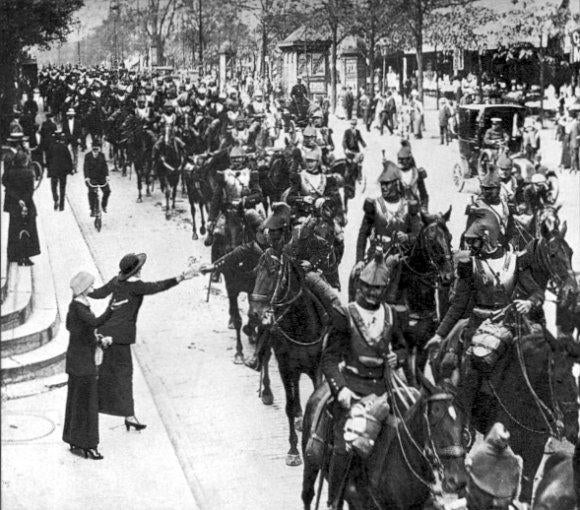This year, we’re likely to see quite a bit of public commemoration of the 100-year anniversary of the beginning of World War I, and a slew of new 1914 books already hit shelves toward the end of last year.
1914 is obviously one of those big years, like 1776, 1848, 1945, or 1989, that serves as shorthand for major historical events or transformations. (Quick plug for the very good books Strange Rebels: 1979 and the Birth of the 21st Century by my former colleague Christian Caryl and 1959: The Year Everything Changed by my current colleague Fred Kaplan.)
But which year was the biggest transformational year of them all? Northeastern University historian Ben Schmidt plotted out the years used in the titles of dissertation tracked by the American Historical Association for the last 120 years, and came up with the graph below:
1945 is clearly the all-time champ. But as you can see, the results are a little skewed by the fact historians really like years divisible by 10 and 5. To remove that effect, Schmidt ran an algorithm that weighted years’ distance from multiples of 5, 10, 50, and 100. The chart below shows the years that most exceed expectations, the ones that are famous for the events that happened during them rather than simply because they began a decade or century:
Unexpectedly for me, 1763, the year the Seven Years’ War ended and also a key date in the run-up to the American Revolution, turns out to be the year that most exceeds expectations. Next up are the more obvious dates of 1914, 1789, 1848, and 1776.
What about more modern dates? The Berlin Wall/Tiananmen year of 1989 has already joined the pantheon. 2001 will surely eventually make the cut for 9/11 and the beginning of the war on terrorism. The beginning of the Arab Spring protests may make 2011 a candidate.
Will the year we’re just beginning make the cut? As a lot of the discussion of 1914-2014 parallels this week has made clear, turning point years aren’t necessarily ones you want to live through.
